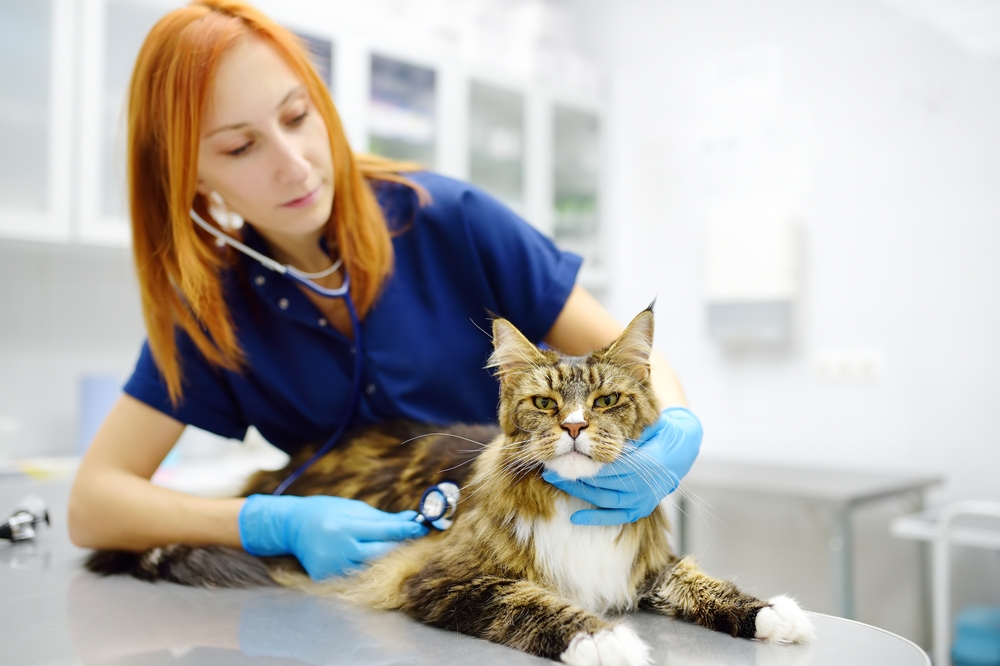

Pets are part of our families, so seeing them suffer with gastrointestinal (GI) problems can be stressful and concerning. While occasional stomach issues like mild diarrhea or a single episode of vomiting can be normal, persistent or severe GI symptoms may indicate a more serious health issue. Here, we'll cover common GI problems in pets, when to seek veterinary attention, and how the Animal Hospital of Whitfield County can help ensure your pet’s digestive health.
Common Gastrointestinal Issues in Pets
Gastrointestinal issues in pets can range from mild, temporary discomfort to severe, chronic conditions. Some of the most common GI problems include:
• Diarrhea - Often caused by dietary indiscretion (eating something they shouldn’t), parasites, or bacterial infections.
• Vomiting - May result from ingestion of toxins, infections, or even gastrointestinal blockages.
• Constipation - A less common but serious issue, often related to dehydration, dietary fiber issues, or other underlying conditions.
• Loss of Appetite - Can be a sign of a variety of GI disorders, from mild upset to more severe health problems.
• Abdominal Pain or Bloating - Especially concerning in dogs, as bloating can indicate a life-threatening condition known as gastric dilatation-volvulus (GDV).
• Gas and Flatulence - While often harmless, excessive gas can sometimes point to an issue with diet or digestion.
Symptoms That Indicate a Visit to the Vet
Certain symptoms may indicate a need for immediate veterinary attention to avoid complications and ensure proper diagnosis and treatment:
• Persistent Vomiting or Diarrhea: If your pet is vomiting or has diarrhea frequently or for more than 24 hours, it’s time to seek help. Chronic vomiting or diarrhea can lead to dehydration and may indicate a more serious underlying condition.
• Blood in Stool or Vomit: The presence of blood is a red flag. Blood can appear as bright red (indicating fresh bleeding) or dark/black (suggesting digested blood).
• Lethargy and Weakness: If your pet seems unusually tired, weak, or unresponsive, it could be a sign of dehydration or other serious illness.
• Abdominal Pain and Distress: If your pet shows signs of pain, such as whining, whimpering, or sensitivity to touch in the abdomen, consult a vet immediately.
• Persistent Loss of Appetite: Refusing food for over a day is unusual, especially if it’s accompanied by other symptoms like vomiting or lethargy.
Potential Causes of GI Problems in Pets
Many things can cause gastrointestinal issues in pets, including:
• Dietary Changes: Abruptly changing your pet’s food or introducing new treats can upset their digestive system.
• Ingesting Foreign Objects: Pets, especially dogs, may eat items that aren’t digestible, leading to blockages.
• Parasites: Worms and other parasites are a common cause of GI issues in pets.
• Toxicity: Some foods (like chocolate for dogs or lilies for cats) are toxic, causing severe GI and systemic symptoms.
• Allergies and Food Sensitivities: Certain foods may not agree with your pet’s system and can lead to chronic stomach issues.
• Chronic Conditions: Conditions like inflammatory bowel disease (IBD), pancreatitis, and liver or kidney disease can manifest with GI symptoms.
Diagnosing Gastrointestinal Issues in Pets
When you bring your pet to the Animal Hospital of Whitfield County, we will perform a thorough exam to understand your pet’s symptoms. Diagnostic tests, such as blood tests, X-rays, or ultrasounds, may be recommended to get a comprehensive view of what’s causing the problem. In cases of suspected blockages or foreign object ingestion, advanced imaging may be used to assess the severity and decide on the best treatment.
Treatment and Preventive Care for GI Health
Treatment depends on the underlying cause of the GI issue. In many cases, dietary adjustments, medication, and hydration can alleviate mild GI problems. For more serious issues, surgery or specialized medications may be required.
Preventive Tips to Keep Your Pet’s GI System Healthy
• Gradually Change Diets: When introducing new foods, do so slowly over 7-10 days to give your pet’s system time to adjust.
• Avoid Feeding Table Scraps: Many human foods are not suitable for pets and can cause digestive issues.
• Provide Regular Deworming and Parasite Prevention: Consult with our vets to maintain a parasite prevention schedule.
• Offer Fresh Water: Ensure that your pet has access to clean water to prevent dehydration, which can worsen GI symptoms.
• Regular Veterinary Checkups: Routine checkups can catch issues before they become serious, allowing us to monitor your pet’s health closely.
Trust the Animal Hospital of Whitfield County for GI Care
Your pet’s health and comfort are our top priorities. With experienced veterinarians and advanced diagnostic tools, we can identify the cause of your pet’s discomfort and provide effective treatment.
If your pet is showing signs of a GI issue, reach out to the Animal Hospital of Whitfield County. Visit our office in Dalton, Georgia, or call (706) 226-3710 to book an appointment today.











